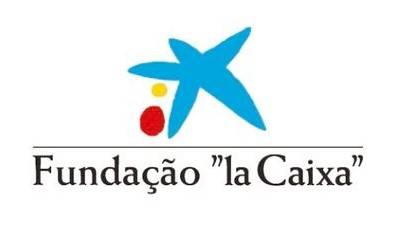
Two projects developed by NOVA University Lisbon researchers were distinguished by the CaixaResearch Contest on Health Research 2022, promoted by "la Caixa" Foundation.
The projects are "A new treatment to prevent age-related macular degeneration", led by Miguel Seabra, from NOVA Medical School (NMS), and the project "A platform to rapidly develop and produce new biopharmaceuticals to fight emerging viruses", whose main researcher is Cláudio Soares, from ITQB NOVA.
Recognized for their excellence and the positive impact they may have on citizens' health, the NMS and ITQB NOVA projects will be awarded funding of around 985 thousand euros and one million euros, respectively.
The Contest, which also has the partnership of the Foundation for Science and Technology (FCT), has awarded a total of 23.1 million euros to 33 promising biomedical and health projects - 20 Spanish and 13 Portuguese - that will be developed over the next three years.
"A new treatment to prevent age-related macular degeneration" (NMS)
Age-related macular degeneration (AMD) is a degenerative disease of the retina that causes a progressive degradation of central vision. It is the leading cause of irreversible blindness in developed countries and is now incurable. The disease results from the death of a certain type of cells (photoreceptors) in the macula, the area of the retina responsible for high-resolution vision.
In previous studies, researchers have obtained new and solid evidence that the NRF2 protein plays a crucial role in protecting the macula, since it prevents the death of these cells during AMD. Therefore, this project will study the protective role that NRF2 may play in AMD before it becomes irreversible and causes permanent damage. The laboratory studies will aim to select the best molecule that activates the NRF2 protein and protects the retina. At the same time, these studies will be complemented by an observational clinical study in patients who will be administered an NRF2-activating drug that is already in clinical use.
The results of this study may facilitate the development of a long-awaited preventive treatment for AMD, as well as other age-related chronic diseases.
"A platform to rapidly develop and produce new biopharmaceuticals to fight emerging viruses" (ITQB NOVA)
The emergence of viral diseases, such as influenza and COVID-19, poses a threat to global health and socio-economic stability. It is therefore vital to respond quickly and effectively to viral threats and outbreaks with targeted therapeutic solutions. Biopharmaceuticals can play a crucial role, precisely because of their high potential for specificity. Nevertheless, the use of biopharmaceuticals requires rapid development and production strategies.
To address this problem, researchers aim to create an integrated platform capable of designing new molecules potentially active against a given threat and validating them in vitro. The platform, known as BioPlaTTAR, will accelerate the development of biopharmaceuticals for specific pathogens in emergency situations. Initially, researchers will focus on influenza and COVID-19 viruses.
These results may facilitate the development of new treatments, used alternatively or in combination with small molecules and vaccines. In the future, this platform could adapt to new viral outbreaks. It will be a way to promote Europe's competitiveness and self-sufficiency in the field of biopharmaceutical development.